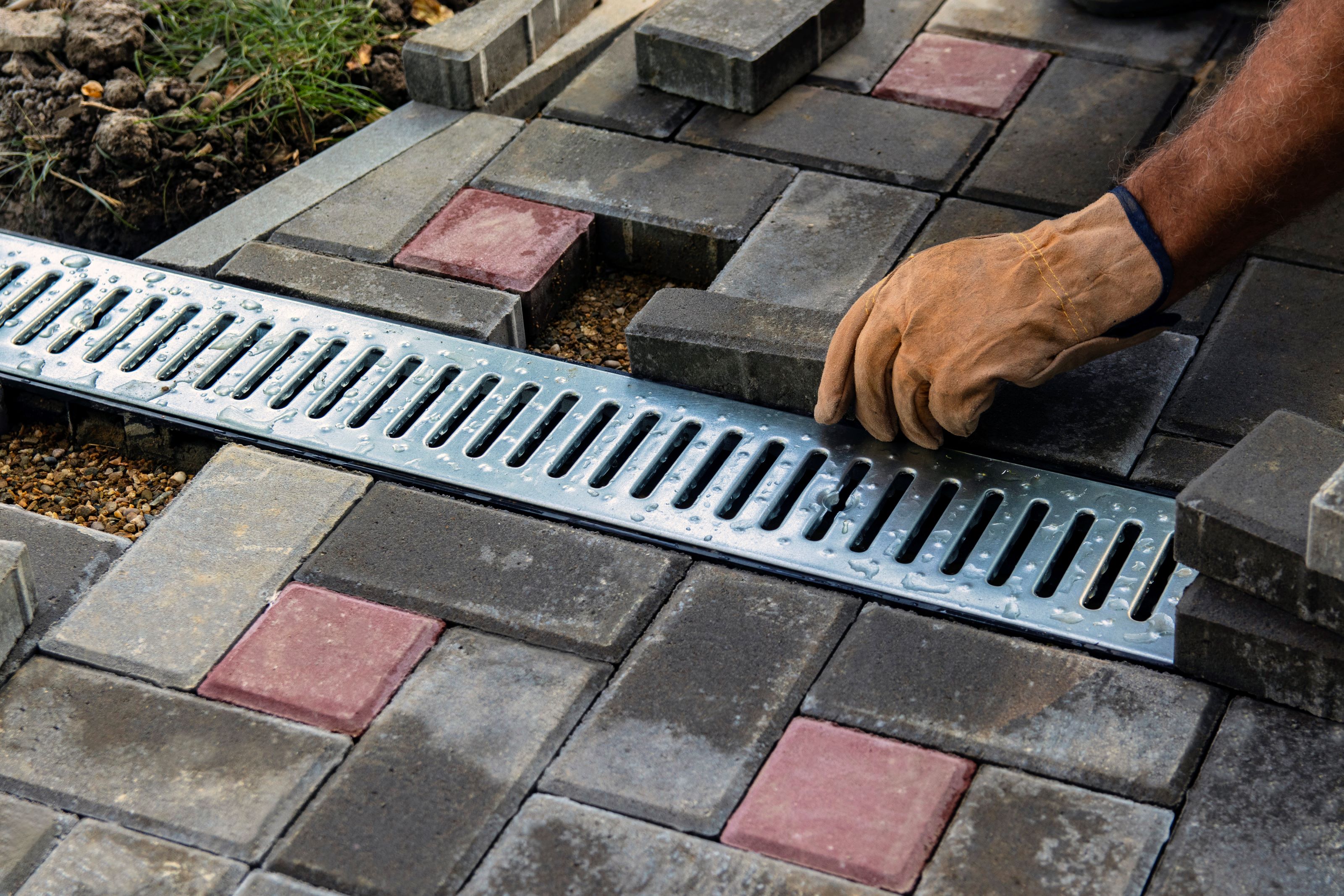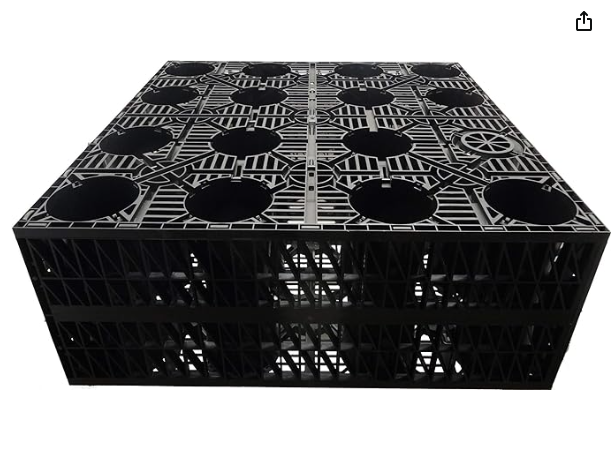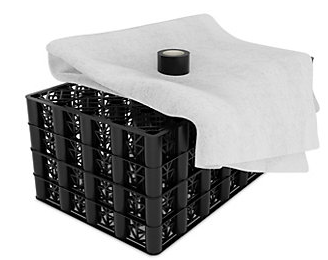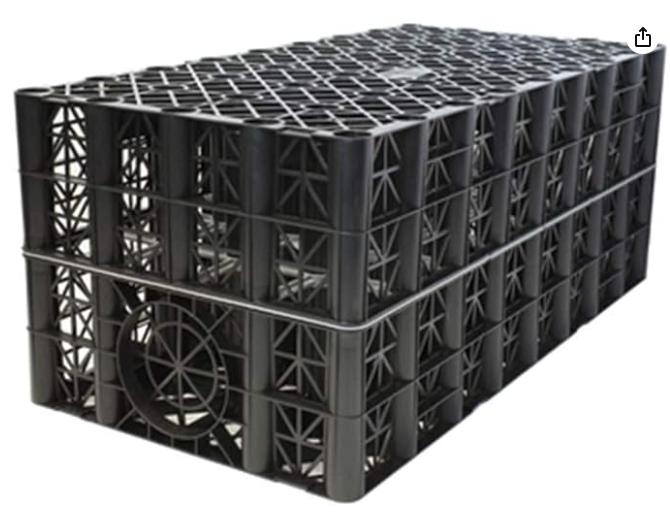
Bring your dream home to life with expert advice, how to guides and design inspiration. Sign up for our newsletter and get two free tickets to a Homebuilding & Renovating Show near you.
You are now subscribed
Your newsletter sign-up was successful
Surface water drainage is essential for properties in the UK and improving it in homes and gardens is increasingly a top priority.
With increasing amounts of rainfall, appropriate off mains drainage solutions for surface water should be incorporated into the design of gardens and driveways to prevent flooding. And where the level of drainage is insufficient or cannot cope with the volume of rainwater, water may even discharge onto neighbouring properties, which. can cause disputes or legal issues.
Here, our experts explain what surface water drainage is and why it is important to consider improving in your home.
What is surface water drainage?
Surface water drainage is the process of collecting and carrying away the rainwater that falls on hard surfaces.
"Surface water drainage disposes of the rainwater that collects on roofs via gutters and downpipes", adds Homebuilding & Renovating's self build expert Mark Stevenson. "Surface water drainage must be designed and then approved by the building inspector before construction can begin. The drainage pipes should have appropriate fall and should be capable of being accessed for maintenance purposes.
"The products used to build the surface water drainage system are also mostly the same as those used for foul water drainage systems."
The majority of rainwater that falls on properties in the UK drains into public sewers, which are operated by several water companies in England and Wales. These companies are responsible for dealing with the removal and processing of this water. The cost for this service is added to the water bill of householders unless the property uses a soakaway rather than public sewers. In these circumstances a surface water rebate is applicable.
Bring your dream home to life with expert advice, how to guides and design inspiration. Sign up for our newsletter and get two free tickets to a Homebuilding & Renovating Show near you.
Natalie Mitchell, property and construction expert at HomeHow.co.uk, says there are issues that can impact drainage around your property that you should be aware of. “These include tree roots damaging or blocking drainpipes, land movement or subsidence or the impact of heavy traffic or construction work above drainage systems,” she said. “Any of these issues could cause a failure in the drains. Excess surface water can also create problems including subsurface moisture levels causing structural issues with the property."

Mark Stevenson has worked as a construction professional for almost 30 years and following an extensive career in housebuilding became managing director of Potton where he helped self builders build their own homes. Whilst Mark describes himself as a ‘professional builder’ as a result of his career in housebuilding and timber systems manufacturing, he has specialist knowledge of timber construction and extensive expertise in finding land and appraising building plots.
What are surface water drainages examples?
All the parts of your guttering system are surface water drainage. They collect and dispose of the rainwater into the sewer system. So, your gutters, downpipes and external drains are all components of surface water drainage. Likewise, soakaways are also surface water drainage, which go hand in hand with other SUDs (sustainable drainage systems) options.
Drains on public roads are also part of this system. Anything that facilitates the collection and disposal of rain and runoff water is surface water drainage.
Natalie adds: “Badly laid driveways or patios with little or no fall can result in surface water from rain and runoff not draining away. This can penetrate the fabric of the house and cause damp and mould issues if not resolved.
“The trend for turning front gardens into off-street parking has reduced the amount of soil available for the natural absorption of rainwater. This extra expanse of concrete means rainwater has to find its way to the closest drain rather than being absorbed by the ground.”

Natalie Mitchell has worked as a property and construction expert for HomeHow for five years and has worked in the construction industry for over twenty years. Natalie continues to work on building projects, while also providing expert construction and property advice to industry professionals and DIY enthusiasts.
Deals on soakaway crates
FAQs
How do I know if my house has surface water drainage?
Any property with guttering, downpipes, drains or channels has surface water drainage. If there is a soakaway at your home, then you may see an indentation leading from the house to a slightly sunken area of your garden.
Urban areas are more susceptible to flood during heavy and sustained rainfall. This is because the ground in urban areas is more likely to be covered by concrete which does not absorb water. In fact, more properties are at risk of surface water flooding than those at risk of river or sea water ingress.
Low lying properties may be more susceptible to flooding depending on the provisions made for surface water runoff. If you are finding that every time it rains deep water pools on your patio or driveway, it is likely either you need surface water drainage or the system you have in place is not adequate for your home's needs.
You may want to dive into our guide about drainage surveys if you need advice on all the issues you may face.
Can adding surface water drainage save me money?
If your water does not discharge into the public sewer system, but into a private soakaway or other private system then you can claim a surface water drainage rebate on your water bill.
This is because you are providing the drainage system not the local water company.
Here's how to apply for a surface water drainage rebate — which you can even backdate six years.
If you have a problem with surface water runoff from your property - or onto your property - it is worth having a read of our piece on surface water runoff regulations that looks at the legalities of the issue.
Here, we go into detail about when you or your neighbour could be found liable if action is not taken to stop surface water dispersing onto or from your land.
Sam is based in Coventry and has been a news reporter for nearly 20 years. His work has featured in the Mirror, The Sun, MailOnline, the Independent, and news outlets throughout the world. As a copywriter, he has written for clients as diverse as Saint-Gobain, Michelin, Halfords Autocentre, Great British Heating, and Irwin Industrial Tools. During the pandemic, he converted a van into a mini-camper and is currently planning to convert his shed into an office and Star Wars shrine.




